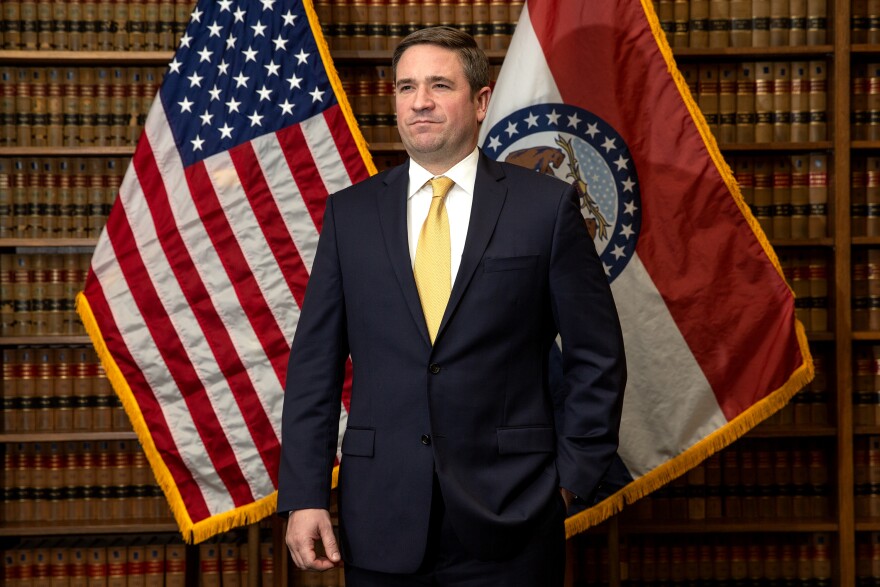In a surprising development that has drawn national attention, the Missouri Attorney General has been appointed as Co-Deputy Director of the Federal Bureau of Investigation (FBI). The decision highlights the evolving nature of federal law enforcement leadership and the growing importance of state-level legal expertise in shaping national security and justice policy. The appointment is not only a significant personal achievement for Missouri’s top law enforcement officer but also a moment that underscores the interconnectedness of state and federal institutions.
A Historic Appointment
The role of Deputy Director within the FBI has traditionally been reserved for career officials with long tenures inside the bureau. By elevating a sitting state Attorney General to this high-ranking federal position, the administration signals its recognition of the practical experience state law enforcement leaders bring to the table. The creation of a “Co-Deputy Director” structure further demonstrates the Bureau’s intent to broaden its leadership team, ensuring that a wider range of perspectives influences national law enforcement strategies.
For Missouri, this appointment is a source of pride, reflecting the growing national reputation of its Attorney General. Known for a firm stance on law and order, consumer protection, and constitutional rights, the Attorney General has become a figure of prominence not just in state politics, but also on the national stage. His track record of balancing complex legal cases with broader issues of public trust has likely played a significant role in his selection.
Responsibilities of the Role
As Co-Deputy Director of the FBI, the Missouri Attorney General will share responsibility for overseeing the Bureau’s daily operations, managing its vast workforce, and helping to shape the agency’s response to the nation’s most pressing challenges. This includes issues such as cybercrime, terrorism, organized crime, public corruption, and civil rights violations.
The appointment also suggests that the Bureau is keen to leverage the Attorney General’s experience in handling state-level criminal prosecutions and public policy disputes. His background in navigating both political and legal battles in Missouri provides a strong foundation for contributing to the FBI’s complex mission. Moreover, his familiarity with state-federal partnerships will be valuable in fostering closer collaboration between the Bureau and local law enforcement agencies.
Political and Public Reactions
The announcement has sparked mixed reactions across the political spectrum. Supporters argue that the move injects fresh energy into the Bureau, breaking from tradition to include leaders with diverse experiences. They highlight the Missouri Attorney General’s reputation for integrity and his proven ability to handle high-profile cases as reasons he will succeed in the role.
Critics, however, have raised concerns about the potential politicization of the FBI. Since the Attorney General is an elected official, some worry that his background in partisan politics could complicate the Bureau’s commitment to impartial law enforcement. The designation of “Co-Deputy Director” may itself be a compromise, ensuring that traditional FBI officials continue to share leadership with the new appointee.
Despite these concerns, there is little doubt that the appointment has generated significant interest in how the Bureau will function moving forward. With an increasing demand for transparency and accountability, many see this leadership shake-up as part of a broader effort to rebuild trust between the public and federal institutions.
Impact on Missouri
For Missouri, the elevation of its Attorney General to such a prestigious federal role marks a turning point. It raises the state’s profile in national politics and provides a direct channel of influence in Washington. The office of the Missouri Attorney General has long been a stepping stone for ambitious public servants, but this particular appointment stands out as one of the most remarkable in recent memory.
The immediate question for Missouri residents is who will succeed him in the Attorney General’s office. State law provides for the governor to appoint a replacement until the next election, which means political maneuvering will be swift and intense. Whoever takes over will inherit an office that has become a national focal point.
Broader Implications
The appointment also signals a growing trend of crossover between state-level legal leaders and federal law enforcement institutions. As crime and security threats become increasingly complex, the FBI appears to be broadening its leadership structure to incorporate officials with varied backgrounds. This could pave the way for more state Attorneys General or other prominent state officials to take on federal roles in the future.
Additionally, the decision may reflect a strategic move by the federal government to strengthen ties with states. At a time when trust in institutions is fragile, integrating leaders who have direct experience engaging with the public at the state level could help bridge the gap between citizens and the federal government.
Looking Ahead
The Missouri Attorney General’s tenure as Co-Deputy Director of the FBI will be closely watched. His performance will not only shape the Bureau’s effectiveness but may also influence future appointments of state officials to federal posts. Observers will pay particular attention to how he balances his background as an elected politician with the Bureau’s mission of impartial enforcement of federal law.
For now, the appointment marks a milestone in both Missouri’s history and the evolution of the FBI. It demonstrates the value of diverse perspectives in federal leadership and reinforces the importance of collaboration between states and the federal government in tackling challenges that transcend borders.
Conclusion
The naming of the Missouri Attorney General as Co-Deputy Director of the FBI is a decision that blends state-level experience with federal responsibility. While it has sparked both enthusiasm and skepticism, it undeniably reflects the changing landscape of law enforcement leadership in America. Missouri gains national recognition, the FBI gains a leader with practical legal and political experience, and the country watches closely to see how this historic appointment shapes the Bureau’s future.



